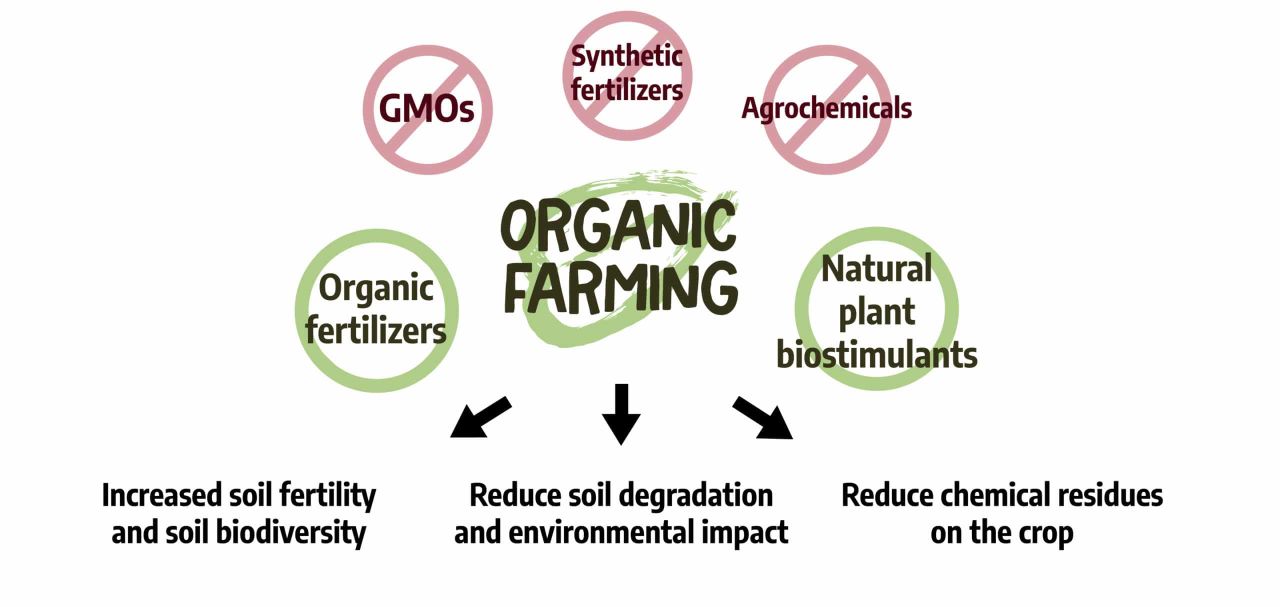Sourcing Organic Seeds
Organic seeds are now more accessible than ever. Consider purchasing organic seeds initially and gradually transition to saving your seeds. While not feasible for all farms, this practice can reduce costs over time. Additionally, explore local seed banks and participate in seed exchanges to diversify your seed collection.

Managing Soil Health and Fertility
Organic farming extends beyond avoiding synthetic inputs. Prioritize holistic land management and maintaining fertile soil:
- Crop Rotation: Balance soil demands by rotating crops. For example, follow a legume-cereal rotation to fix nitrogen and improve soil structure.
- Nutrient Cycling: Use legumes or animal manures to cycle nutrients. Composting kitchen scraps and green manure cover crops can also enhance soil fertility.
- Closed-Loop Systems: Manage waste efficiently by composting crop residues and integrating livestock manure into the soil. Consider vermiculture (worm composting) for nutrient-rich vermicompost.
- Soil Testing: Regularly test soil pH, nutrient levels, and organic matter content to fine-tune your management practices.
Minimize additional inputs for optimal production and financial sustainability. Explore natural soil amendments like rock dust, seaweed extracts, and biochar.
Weeds, Pests, and Disease Control
Maintain a natural balance to prevent proliferation:
- Healthy Soil: Start with healthy soil for resilient plants. Enhance soil structure by adding organic matter and promoting beneficial soil microorganisms.
- Integrated Pest Management (IPM): Time sowing strategically, rotate crops, and use physical barriers. Boost biodiversity by planting hedgerows, wildflowers, and companion plants. Encourage natural predators like ladybugs and lacewings.
- Organic Pest Control: Sometimes necessary as a last resort. Use neem oil, diatomaceous earth, or garlic-based sprays. Monitor pest populations and intervene early.
- Weed Control: Address this challenge using mechanical and cultural methods. Dense sowing, mulching, and reducing bare soil help manage weed pressures. Consider flame weeding or using specialized tools like wheel hoes.
Transitioning to organic production requires thoughtful planning and adaptation. By following these principles, small farms can thrive sustainably, nourishing people and the planet.


